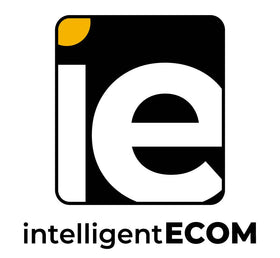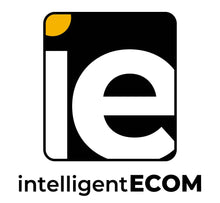Google-supported browsers are planning a big leap towards cookie-less internet. It's time to think about what's next in advertising! An alternate identifier is not in Google's plan. It has clarified that building a new platform will not meet customers' rising demand for high-end privacy. Though it sounds bad, advertisers and retailers can calm down. You don't need to step back. It's all about stepping ahead with brand new strategies that focus on user-friendliness and user privacy.
Well, every marketer is a consumer too. Hence, this shift towards the new privacy-driven policy is not a linear perspective. Besides, it's a multifaceted approach from Google that assures integrity & loyal customer relationship in the long run.
Creating relevant and context-based advertisements is possible in a third-party cookie-less digital space. Exploring possibilities in First-Party Consented Data and Privacy Sandbox is the new norm. It aims at building privacy by eliminating individual tracking and focusing on a group of consumers with a common interest.
1. First-Party Consented Data for Ensuring Privacy & Collecting Authentic Data

Winning customer satisfaction and confidence is the aim of the new cookie-less web. First-party consented data collects information from web visitors without inviting a third-party data broker for collecting information. Thus it gives complete control and security over collected data, unlike and third-party data.
Any information collected through a CRM, mobile apps, website, and social media survey is first-party data. It can provide you with crucial information like:
- Customer Demography
- Purchase history
- Feedback
- Geographic location
- Age and Gender
- Engagement rate and so many things
- Data from email subscriptions
By using first-party data you can easily create relevant and personalized ads without breaching the privacy of users and adhering to regulations by GDPR (General Data Protection Regulation). A third-party cookie ban is never the end of context-based marketing. If the third-party cookie collects data from random browsers, first-party cookies help advertisers to generate a focus-based customer profile and meaningful content that is more likely to convert.
So, building a first-party data-driven strategy is necessary to cope up with the emerging privacy trend. Driving accurate information from customers who are directly involved with your brand and tailoring content or services for their personalized needs is what first-party-driven ad strategies focus on.
Customers love to see relevant ads that are based on their interests. So planning consent-oriented contextual ads based on first-party data can help you integrate value-based information and guidance at the right time to the right customer.
Email marketing is not a new norm. But leveraging first-party data for building an effective email marketing strategy is necessary to adapt to the mounting demand for privacy.

2. Privacy Sandbox Technology For User Privacy
Privacy Sandbox is Google's new privacy platform where advertisers and marketers can find verified data in an isolated and safe environment. It integrates key areas of advertising like:
- Targeting
- Delivery
- Performance
- User privacy
Privacy Sandbox designed proposals help advertisers to reach target customers without investing in third-party data. Among the Privacy Sandbox proposals, FLoC has gained momentum as a replacement for third-party cookies.
FLoC Groups: Interest-Based Advertising Space
FLoC or Federated learning of Cohorts is an interest-based advertising space where the website or Google's algorithm creates groups or cohorts through machine learning that accommodates people with similar interests without sharing their private data.
In a recent update, Google said FLoC will generate 95% conversion per dollar compared to the third-party cookies by securing privacy. Sharing individual browsing history or data is a privacy issue with third-party cookies. Google ensures that the new cohort-based advertising stores user data locally through artificial intelligence. A common user ID is given to users of a particular cohort. The user will be known through the Id, and no extra information about the user will be shared with a third person.

FLoC is beneficial to advertisers and online retailers as it helps to run an interest-based ad to a cluster by adhering to the privacy policy. Unlike the random ads and misplaced ads that hinder customer journey, advertisers are more comfortable with targeting groups that share similar interests rather than tracking individual history.
Sandbox technology seems beneficial in the long run to eliminate the problem with third-party site tracking and cross-site tracking. Apart from replacing third-party cookies, there is a lot more with the Sandbox proposal that ensures digital integrity and safety.
Some of the key focus areas include:
- Generating relevant and meaningful content for marketing and remarketing for the target audience, not the random audience.
- Site measurement, tracking clicks and ad views without breaking privacy policy
- Enables first party-protection and fraud detection to win user confidence
- Ensures a limit on data collection by curbing identification of the individual user and promoting a cohort environment that is safer to generate context-based ads.
- Provides a federated or anonymous Id to the user and relies on consented data or other relevant information, which are comfortable for users.

Building a Privacy-Enabled Digital Ecosystem
This is the time to strategize privacy-driven target ads that replace the shortcomings of third-party cookie-less internet. Adjusting with Google's big trends might take time. But it is necessary to plan strategies that are more inclined towards digital safety and customer satisfaction.
Investing more time and money in building a genuine and personalized relationship with the customers is vital rather than investing in a place that tracks and follows customers randomly without identifying users’ interests and requirements.
Enhancing privacy trends should be the primary focus. Stay updated with eComIntegrate to know more about insightful data tracking, measurement, and conversion campaigns.
What's Next: Towards an Insightful Cross-Platform & Cross-Device Tracking
[nerdy-form:11564]






Leave a comment